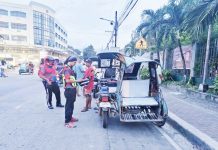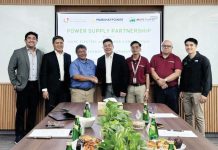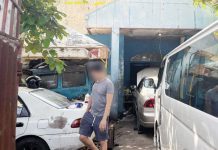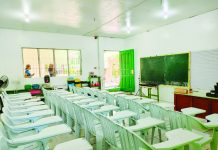ILOILO City – Enrollees for school year 2020-2021 in Western Visayas reached 1,679,038, data from the Department of Education (DepEd) showed – down from the number of enrollees in the 2019-2020 school year. The sharpest drop is in private schools.
For the upcoming new school year, DepEd-6 is hoping to exceed the 2019-2020 enrollment of over two million learners despite the coronavirus disease 2019 (COVID-19) pandemic.
Of the new enrollees, 1,561,375 registered in public schools. Here’s the breakdown:
* Kindergarten – 103,842
* Elementary – 780, 836
* Junior High School (JHS) – 498,486
* Senior High School (SHS) – 178,211
In the previous 2019-2020 school year, public school enrollment in Region 6 was 1,798,939.
Enrollment in private schools for the new school year reached 89,977 (Kindergarten, 4,789; Elementary, 18,612; JHS, 39,544; SHS, 27,032).
The plunge is deep. In school year 2019-2020, there were 236,298 enrollees in the region’s private schools.
Education secretary Leonor Briones blamed the economic setback brought by the pandemic.
“Hindi ito nakapagtataka dahil ang natamaan nang husto ng dagok sa ating ekonomiya ay ang mga private schools, businesses at naaapektuhan ang kapasidad ng mga parents na magpadala ng kanilang mga anak sa private schools,” Briones said in an online press briefing.
As to the enrollment figures in tertiary schools in Region 6, only 1,196 learners have so far registered (Kindergarten, three; Elementary, 85; JHS, 805; and SHS, 303) – way below the 2019-2020 enrollment figure of 5,052.
In the Alternative Learning System (ALS), on the other hand, the region’s enrollment is 22,488 – over 50 percent lower than 61,039 enrollees in school year 2019-2020.
In non-graded education both in public and private schools, DepEd-6 reported an enrollment of 4,002.
Enrollment for school year 2020-2021 started on June 1 and ended on July 15. DepEd-6, however, said schools would continue receiving late enrollees.
Due to COVID-19 pandemic, parents and students were offered several options to enroll – via electronic mail, through social media applications such as Facebook and Viber among other internet-based communications applications, through phone calls, and short messaging system (text).
DepEd also strictly maintained the “no collection policy” during the enrollment period.
Nationwide, data from DepEd showed that as of July 17 there were only 1,169,976 students enrolled in private schools across 17 regions.
Of this number, 45,754 students were in kindergarten; 259, 182 in elementary; 454, 712 in JHS, 409, 150 in SHS and 1,178 are non-graded learners with disabilities.
According to the DepEd, the number is only 27 percent of last year’s 4,304,676 – a sharp 73 percent drop, overall.
DepEd, however, remains hopeful the enrollment will still “increase in the coming weeks.”
The Alliance of Concerned Teachers (ACT) Philippines criticized DepEd for failing around seven million learners nationwide who have not enrolled for the coming school year and the 19.5 million whose education “is bound to suffer” due to the agency’s unprepared learning modalities under its “new normal.”
Meanwhile, Dr. Lea Belleza, DepEd-6 regional information officer, said they already started preparing for various “learning delivery modalities”. These were face-to-face learning, distance learning, blended learning, and homeschooling.
Belleza said face-to-face learning may be allowed in areas considered as “low-risk” for COVID-1 9 transmission but health safety measures would be strictly observed such as regular disinfection of schools, frequent hand-washing, wearing of facemask, observing physical distancing, and checking of body temperature.
For distance learning, DepEd-6 has three strategies. These are the following:
* online class – but only possible if students have the needed gadgets such as laptop or desktop computer, cellphone, and strong internet connection
* modular – printed or electronic materials would be issued for students to study; this includes worksheets, too, that students must answer and other learning materials that teachers would deem necessary for the students
* radio- or television-based instruction
DepEd-6 is exploring the possibility of combining the above-mentioned modalities for a “blended” learning experience of students, said Belleza.
She also did not discount the possibility of homeschooling; the students just stay at home and their parents would teach them based on the curriculum and learning materials set by the school.
Belleza said it is up to schools to determine which teaching strategies would be suitable for their students.
Also, she said, it is ultimately up to the parents to decide if they want to enroll their children to school or not./PN





